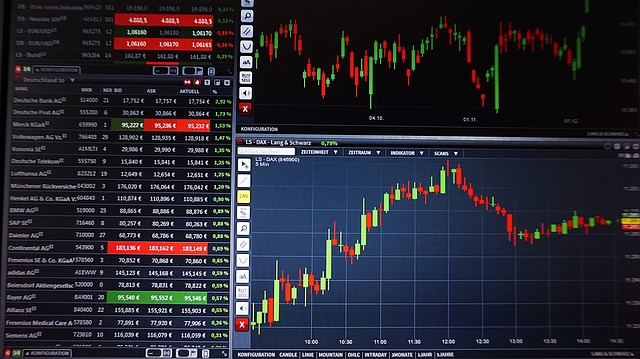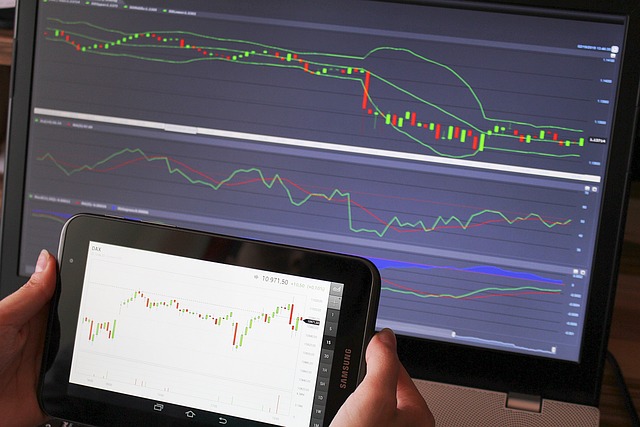AI Trading Robots: Are Trading Bots Legal?
Author: Jameson Richman Expert
Published On: 2024-12-20
Prepared by Jameson Richman and our team of experts with over a decade of experience in cryptocurrency and digital asset analysis. Learn more about us.
The rise of artificial intelligence (AI) has transformed numerous sectors, and financial trading is no exception. As a result, AI trading robots, also known as trading bots, have gained immense popularity among both novice and experienced traders. But as these bots become more common, an important question arises—are trading bots legal? In this article, we'll delve into the intricacies of AI trading robots and explore the legal landscape governing their use.

Understanding AI Trading Robots
AI trading robots are software programs that utilize algorithms and AI technologies to analyze financial markets and make trades on behalf of users. These bots can process vast amounts of data at incredible speeds, allowing them to identify trading opportunities that may not be apparent to human traders. The appeal of using such technology is clear: trading bots can operate 24/7, remove emotional decision-making from trading, and execute trades faster than any human could. However, it is crucial to understand both their functioning and the legal implications of using them.
Are Trading Bots Legal?
When it comes to the legality of trading bots, the answer isn't straightforward. The legality of using AI trading robots largely depends on the regulatory environment of a user's location. In many jurisdictions, trading bots are completely legal as long as their use complies with specific regulations set by financial authorities.
For instance, in the United States, platforms and users employing trading bots must abide by the guidelines laid out by the Securities and Exchange Commission (SEC) and the Commodity Futures Trading Commission (CFTC). It is important for users to familiarize themselves with these regulations to ensure they are not violating any laws or engaging in unethical trading practices, such as market manipulation.The Role of Regulations in AI Trading
Regulations surrounding AI trading robots are evolving as financial authorities recognize the implications of automation on the market. As AI technology grows more sophisticated, regulators are concerned about potential risks, including market volatility, investor protection, and data privacy issues.
For this reason, some countries have begun implementing strict guidelines on the use of AI in trading activities. For example, European securities regulators are emphasizing the need for transparency in algorithmic trading to prevent any form of abuse or manipulation. As trading bots continue to gain traction, lawmakers will likely focus on creating a comprehensive regulatory framework that ensures user safety while promoting innovation.

An Insight into Trading Bots
While trading bots can serve as valuable tools for many, it is important to approach them with caution. The Future of Crypto Trading: An In-Depth Look at 3Commas and AI Tools reveals how platforms like 3Commas utilize innovative AI tools to help users optimize their trading strategies. This article highlights how these bots can automate complex trading techniques and assist in executing trades effectively.
Meeting Regulations
To stay compliant with evolving regulations, trading bot developers are also evolving their technologies. In 2024: The Growing Landscape of Cryptocurrency Trading, the article discusses how developers are working toward creating bots that not only comply with regulations but also adapt quickly to market changes. Understanding the existing regulatory structure is critical for both developers and users alike.
Ethical Considerations
The legality of trading bots also encompasses ethical considerations. Users of trading bots must ensure they are not engaging in activities that could lead to market manipulation or create an unfair advantage over other traders. Resources like Can Robinhood Trade Crypto? Unraveling the Mysteries of Crypto Trading provide insight into the ethical debates surrounding the use of trading bots in addition to other trading platforms.

Choosing the Right Trading Bot
Choosing the right AI trading bot involves understanding its features, legal compliance, and how it aligns with individual trading goals. Moreover, users should seek platforms that prioritize user education, enabling them to make informed trading decisions. Articles such as How to Trade Crypto Without an Exchange explore alternative trading methods and underline the importance of understanding various tools available to traders.
Future Prospects
The future of trading bots looks promising, with innovations like self-learning algorithms and adaptive trading strategies coming into play. Additionally, understanding legal frameworks becomes paramount as new technologies emerge. For instance, Unlocking the Future: Samurai Bot and Cryptocurrency Trading Automation details how cutting-edge automation tools are reshaping the landscape of trading bots.
Conclusion: Navigating the World of AI Trading Bots
In conclusion, AI trading robots offer exciting opportunities for traders, but understanding their legal implications is crucial. As the world becomes increasingly reliant on AI in finance, both users and developers must remain vigilant regarding compliance with established regulations. Keeping updated with educational resources, such as Navigating Crypto Trading in 2024: A Comprehensive Guide for Robinhood Users, can empower users to navigate this evolving landscape effectively.
As we look ahead, familiarizing ourselves with legal financial practices while exploring the power of AI trading will define the future of trading. Whether you are a seasoned investor or just getting started, leveraging AI trading bots responsibly has the potential to enhance your trading experience significantly.